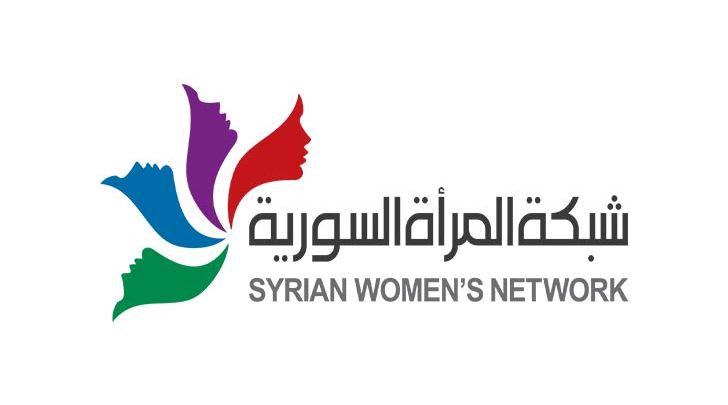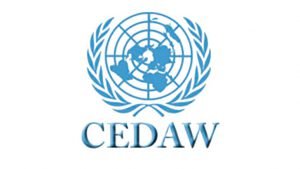By: The Syrian Women’s Network (SWN)
Supervisor researcher: Karam Hilly
With the contribution of the Field Research Members at the SWN:
Maalem Abdulrazzak, Ekram Nasif, Amal Shiekh Debes, Iman al-Ali, Bahaa Munaower, Ramzia al-Haag Taha, Fatima al-Hamid, Ghada Bakeer, Ghada Gumaa, Heba Gazi, Hadeel Yahia.
Brief prepared by:
Kholoud Barakeh
Usama Elashour
Translated by:
Rouba Choufi
Introduction:
There are many strict restrictions imposed on Syrian women wherever they are, whereas these restrictions limit any kind of feminist activity that pursue women’s liberation and contribution in leading the society.
This research is an attempt to shed light on a key aspect of the structural discrimination against Syrian women, which was deeply planted and strongly enhanced to always give a lower position for women in society. The research represents the challenges that the Syria women face to access the labour market in Turkey and Northern Syria.
Research Problem:
Syrian women are facing huge challenges and difficulties to access the labour market and find jobs. This research is an attempt to explore the reasons behind that and to answer the questions: why job opportunities are almost non-existent for Syrian women? What are the obstacles and the challenges, are they personal, legal, society-related, or skills-related, or all of the mentioned?
In addition, the research explores if there are appropriate governmental or organizational programs that aim to increase the opportunities for women to access the labour market.
Research Target:
The research mainly aims to provide recommendations and to suggest possible solutions that could help women to access the labour markets. Also, to help women’s NGOs to develop teaching and training programs, and to implement better empowerment projects that fit the needs of the labour market in Turkey and Northern Syria.
Research Importance:
As a result of the war and seeking refuge, women had to carry the burden of creating a balance between many roles, which put them under a great pressure. Whereas the ability to meet the basic needs and having basic services became much less, and the difficulties became much more. In addition, many women have lost their “breadwinner” when many men have been arrested, killed, or severely wounded.
The importance of this research comes as it explores these challenges, Suggest, and offer some solutions and recommendations. It’s an attempt to elevate some difficulties, and to increase opportunities for actual empowerment according to women’s needs and priorities, in a way that goes along with the labour market’s needs.
Research Methodology:
The research methods are based on one-to-one interview with a number of employed women, in order to mainly answer how did they find and had these jobs. Also, interviews with a number of women searching for jobs. The target of that was mainly to determine the difficulties’ indicators and obstacles to access the labour market. In addition, several interviews were made with NGOs to have some knowledge about their intervention programs, explore their methods in empowering women and helping them to find jobs. Furthermore, several employers were interviewed.
After examining the interviews’ results, and analyzing the data, indicators were developed into a final guide booklet. Finally, the booklet was distributed to many women who are looking for jobs, both in Syria (Azaz city) and in Turkey (Gaziantep city), and to several effective NGOs.
Research Tools:
Two main tools were applied:
- One-to-one interviews #70
- Questionnaire for women looking for jobs #201
| Syria (Azaz) | Turkey (Gaziantep) |
Questionnaire for women looking for job | 99 | 102 |
Research Hypothesis:
- Women are not able to access job opportunities in the labour market.
A- Lack of skills (trainings, education).
B- Lack of accessing information (rules, obstacles, supportive means, research ways).
C- Society’s lack of support and encouragement (stereotyping, costumes, norms, social circumstances).
D- The unwillingness for the employers to hire women
- Education’s opportunities factor, that prevent women from accessing the labour market
- Low availability of services also prevents women from accessing the labour market
Research results:
- Searching for a job:
Among the women who participated in the interviews, the number of the women who are looking for jobs in Gaziantep reached 90%, while in Syria it reached 96%. More than 50% of them were not even invited to job interviews, while 33% had job interviews (between 1-3 times). In addition, about 20% of them searched for jobs more than 10 times, without any results.
Only about 14% of the targeted groups found jobs at the end, mostly part time. The reasons behind that are: the lack of information they had about the labour market, not looking in the right places, or wrong ways of searching. Where women usually don’t search on official sites where the employers publish information about the job opportunities.
- Women and trainings:
A- 58% of the targeted women in Gaziantep, and 64% in AZAZ have already attended many training workshops. While about 43% in Gaziantep and 32% in Azaz haven’t been to any training workshop before. This fact could influence the employers not to invite those women to job interviews for not having the minimum required qualifications.
B- Did the training workshops meet the labour market needs? Around 33% of the women in Syria and Turkey attended handicraft training workshops, and around 19% of the women in Turkey and 27% in Syria had mainly administration-related trainings. While only about 8% had trainings on searching for job opportunities.
- Challenges facing the employed women:
The study’s data refers to the fact that the most important difficulties and challenges that facing the employed women in Gaziantep are:
Personal difficulties related to gender roles in the family which represented in prioritizing motherhood and caring (about 40%), social norms and obstacles (about 17%), legal obstacles (about 16%), and others (about 21%).
In Azaz also the personal difficulties were about 41%, the social related 25%, the legal 3%, and others 28%.
NGOs and employers, on other hand, prioritized to the social related obstacles (52,5%), stereotyping (42%), the employer’s way of seeing women’s abilities and qualification (10,5%). While personal difficulties/ gender roles-related came second (37%), and others (10,5%).
The women who participated in the research, on the other hand, clarified that one of the most significant challenges they’re having while working are logistics: 82% of them had difficulties in transportation, or having someone to babysit children, and 55% of them had troubles because of taking the children to work with them.
Also, one of the most significant challenges was the absence or lack of safety (50%), and other challenges related to work circumstances (43%), family’s commitments (39%), and cultural and social norms (about 30%).
As for the legal challenges, the data result in Gaziantep showed that having a work permit is the biggest challenge (50%), the validation of the school certificates (25%), and having official legal documents (25%).
While in Azaz the challenge of having a work permit was 40%, the validation of the school certificates (20%), and having official legal documents (40%).
Recommendations:
The research came up with 17 recommendations to meet the Syrian women ‘needs in order to access the labour market, the most important ones are:
- Develop advertisement platforms to educate women about job opportunities and the labour market’s needs in the targeted areas. Also, facilitate women’s access to the job vacancies websites, by publishing them in other different platforms that many women are normally use.
- Implement projects to raise social awareness about the importance of women’s economic participation and provide a social care system for children and elderly people.
- Increase the integrated full specialized training programs that meet the labour market needs.
- Encourage employers to offer a sort of internships, and learning by doing opportunities, to facilitate the way for women to engage in the labour market.
- Conduct more research and studies that focus on learning more about the current reality and circumstances of Syrian women. And on finding ways to remove or elevate the obstacles that prevent the women from having an active economic role in society. In addition, provide logistic and financial support to women’s NGOs and empowerment initiatives, and gender related projects.
The complete research is available on the following link.
Submission to the United Nations Special Procedures on Discrimination and Violence against Syrian Women in Law and Practice
By: The Syrian Women’s Network (SWN)
Supervisor researcher: Karam Hilly
With the contribution of the Field Research Members at the SWN:
Maalem Abdulrazzak, Ekram Nasif, Amal Shiekh Debes, Iman al-Ali, Bahaa Munaower, Ramzia al-Haag Taha, Fatima al-Hamid, Ghada Bakeer, Ghada Gumaa, Heba Gazi, Hadeel Yahia.
Brief prepared by:
Kholoud Barakeh
Usama Elashour
Translated by:
Rouba Choufi
Introduction:
There are many strict restrictions imposed on Syrian women wherever they are, whereas these restrictions limit any kind of feminist activity that pursue women’s liberation and contribution in leading the society.
This research is an attempt to shed light on a key aspect of the structural discrimination against Syrian women, which was deeply planted and strongly enhanced to always give a lower position for women in society. The research represents the challenges that the Syria women face to access the labour market in Turkey and Northern Syria.
Research Problem:
Syrian women are facing huge challenges and difficulties to access the labour market and find jobs. This research is an attempt to explore the reasons behind that and to answer the questions: why job opportunities are almost non-existent for Syrian women? What are the obstacles and the challenges, are they personal, legal, society-related, or skills-related, or all of the mentioned?
In addition, the research explores if there are appropriate governmental or organizational programs that aim to increase the opportunities for women to access the labour market.
Research Target:
The research mainly aims to provide recommendations and to suggest possible solutions that could help women to access the labour markets. Also, to help women’s NGOs to develop teaching and training programs, and to implement better empowerment projects that fit the needs of the labour market in Turkey and Northern Syria.
Research Importance:
As a result of the war and seeking refuge, women had to carry the burden of creating a balance between many roles, which put them under a great pressure. Whereas the ability to meet the basic needs and having basic services became much less, and the difficulties became much more. In addition, many women have lost their “breadwinner” when many men have been arrested, killed, or severely wounded.
The importance of this research comes as it explores these challenges, Suggest, and offer some solutions and recommendations. It’s an attempt to elevate some difficulties, and to increase opportunities for actual empowerment according to women’s needs and priorities, in a way that goes along with the labour market’s needs.
Research Methodology:
The research methods are based on one-to-one interview with a number of employed women, in order to mainly answer how did they find and had these jobs. Also, interviews with a number of women searching for jobs. The target of that was mainly to determine the difficulties’ indicators and obstacles to access the labour market. In addition, several interviews were made with NGOs to have some knowledge about their intervention programs, explore their methods in empowering women and helping them to find jobs. Furthermore, several employers were interviewed.
After examining the interviews’ results, and analyzing the data, indicators were developed into a final guide booklet. Finally, the booklet was distributed to many women who are looking for jobs, both in Syria (Azaz city) and in Turkey (Gaziantep city), and to several effective NGOs.
Research Tools:
Two main tools were applied:
- One-to-one interviews #70
- Questionnaire for women looking for jobs #201
| Syria (Azaz) | Turkey (Gaziantep) |
Questionnaire for women looking for job | 99 | 102 |
Research Hypothesis:
- Women are not able to access job opportunities in the labour market.
A- Lack of skills (trainings, education).
B- Lack of accessing information (rules, obstacles, supportive means, research ways).
C- Society’s lack of support and encouragement (stereotyping, costumes, norms, social circumstances).
D- The unwillingness for the employers to hire women
- Education’s opportunities factor, that prevent women from accessing the labour market
- Low availability of services also prevents women from accessing the labour market
Research results:
- Searching for a job:
Among the women who participated in the interviews, the number of the women who are looking for jobs in Gaziantep reached 90%, while in Syria it reached 96%. More than 50% of them were not even invited to job interviews, while 33% had job interviews (between 1-3 times). In addition, about 20% of them searched for jobs more than 10 times, without any results.
Only about 14% of the targeted groups found jobs at the end, mostly part time. The reasons behind that are: the lack of information they had about the labour market, not looking in the right places, or wrong ways of searching. Where women usually don’t search on official sites where the employers publish information about the job opportunities.
- Women and trainings:
A- 58% of the targeted women in Gaziantep, and 64% in AZAZ have already attended many training workshops. While about 43% in Gaziantep and 32% in Azaz haven’t been to any training workshop before. This fact could influence the employers not to invite those women to job interviews for not having the minimum required qualifications.
B- Did the training workshops meet the labour market needs? Around 33% of the women in Syria and Turkey attended handicraft training workshops, and around 19% of the women in Turkey and 27% in Syria had mainly administration-related trainings. While only about 8% had trainings on searching for job opportunities.
- Challenges facing the employed women:
The study’s data refers to the fact that the most important difficulties and challenges that facing the employed women in Gaziantep are:
Personal difficulties related to gender roles in the family which represented in prioritizing motherhood and caring (about 40%), social norms and obstacles (about 17%), legal obstacles (about 16%), and others (about 21%).
In Azaz also the personal difficulties were about 41%, the social related 25%, the legal 3%, and others 28%.
NGOs and employers, on other hand, prioritized to the social related obstacles (52,5%), stereotyping (42%), the employer’s way of seeing women’s abilities and qualification (10,5%). While personal difficulties/ gender roles-related came second (37%), and others (10,5%).
The women who participated in the research, on the other hand, clarified that one of the most significant challenges they’re having while working are logistics: 82% of them had difficulties in transportation, or having someone to babysit children, and 55% of them had troubles because of taking the children to work with them.
Also, one of the most significant challenges was the absence or lack of safety (50%), and other challenges related to work circumstances (43%), family’s commitments (39%), and cultural and social norms (about 30%).
As for the legal challenges, the data result in Gaziantep showed that having a work permit is the biggest challenge (50%), the validation of the school certificates (25%), and having official legal documents (25%).
While in Azaz the challenge of having a work permit was 40%, the validation of the school certificates (20%), and having official legal documents (40%).
Recommendations:
The research came up with 17 recommendations to meet the Syrian women ‘needs in order to access the labour market, the most important ones are:
- Develop advertisement platforms to educate women about job opportunities and the labour market’s needs in the targeted areas. Also, facilitate women’s access to the job vacancies websites, by publishing them in other different platforms that many women are normally use.
- Implement projects to raise social awareness about the importance of women’s economic participation and provide a social care system for children and elderly people.
- Increase the integrated full specialized training programs that meet the labour market needs.
- Encourage employers to offer a sort of internships, and learning by doing opportunities, to facilitate the way for women to engage in the labour market.
- Conduct more research and studies that focus on learning more about the current reality and circumstances of Syrian women. And on finding ways to remove or elevate the obstacles that prevent the women from having an active economic role in society. In addition, provide logistic and financial support to women’s NGOs and empowerment initiatives, and gender related projects.
The complete research is available on the following link.
Submission to the United Nations Special Procedures on Discrimination and Violence against Syrian Women in Law and Practice






